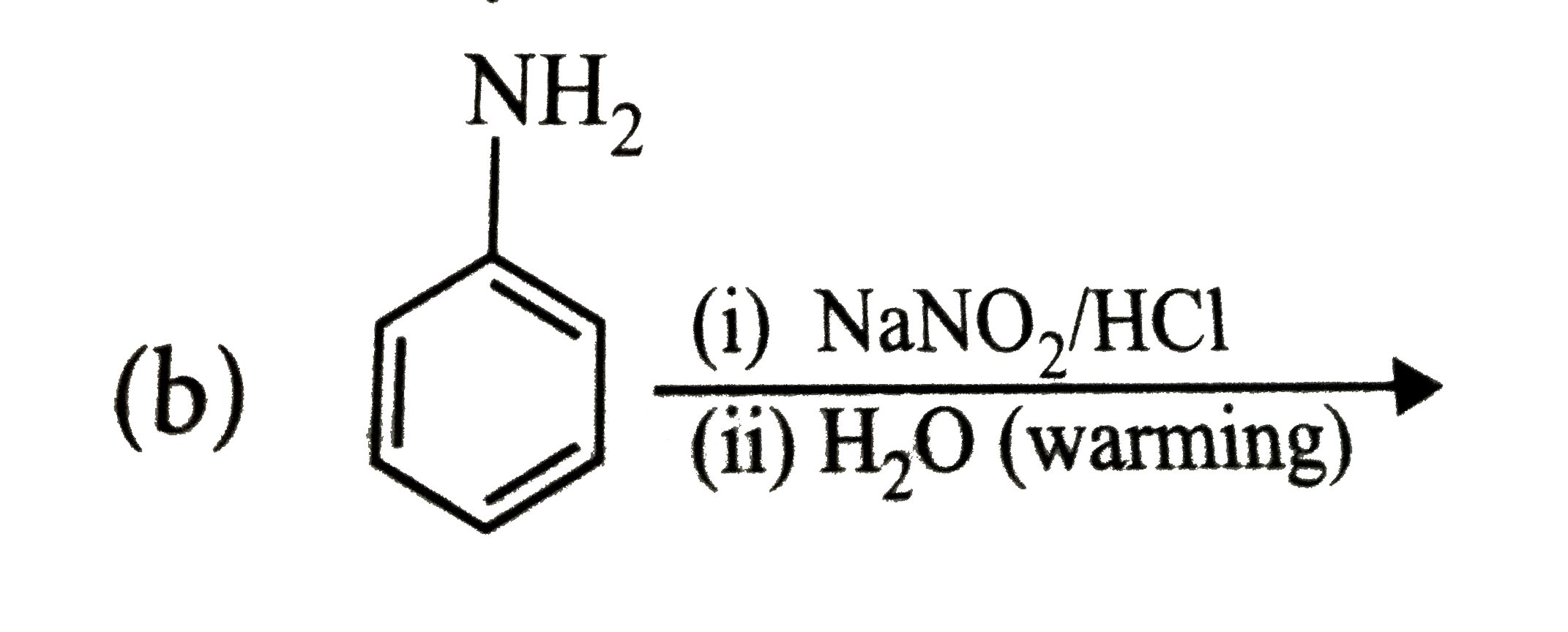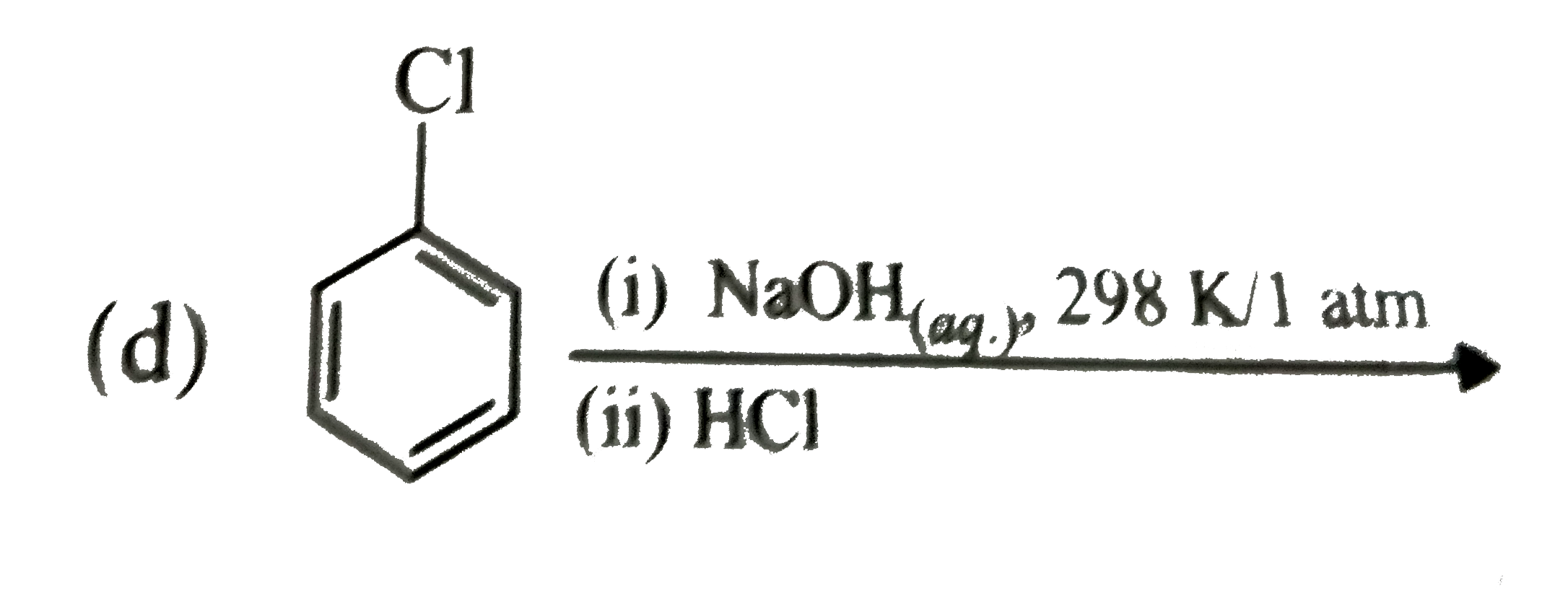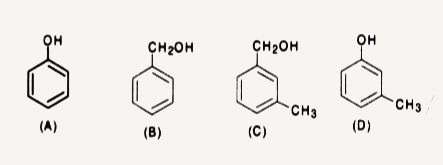Which of the following process do not yield alcohols?
Acid catalysed hydration of alkenes
Hydroboration-oxidation of alkenes
Reduction of aldehydes
Free radical halogenation of alkanes
The correct Answer is:D
To determine which of the following processes do not yield alcohols, we will analyze each option provided:
1. Acid Catalyzed Hydration of Alkenes:
- In this process, an alkene (which has a carbon-carbon double bond) reacts with water in the presence of an acid catalyst (like H3O+).
- The reaction can be represented as:
Alkene+H2OH3O+−−−→Alcohol
- This process results in the formation of alcohol. Therefore, this option does yield alcohols.
2. Hydroboration Oxidation of Alkenes:
- In this process, an alkene reacts with borane (BH3) followed by oxidation with hydrogen peroxide (H2O2) in a basic medium.
- The reaction can be represented as:
Alkene+BH3H2O2/Base−−−−−−−→Alcohol
- This process also results in the formation of alcohol. Thus, this option does yield alcohols.
3. Reduction of Aldehydes:
- In this process, an aldehyde is reduced using a reducing agent (like sodium borohydride, NaBH4).
- The reaction can be represented as:
Aldehyde+Reducing Agent→Alcohol
- This process results in the formation of alcohol. Hence, this option does yield alcohols.
4. Free Radical Halogenation of Alkanes:
- In this process, an alkane reacts with halogens (like Cl2) in the presence of light, leading to the formation of free radicals.
- The reaction can be represented as:
Alkane+Cl2light−−→Halogenated Products
- This process does not produce alcohols but rather halogenated hydrocarbons. Therefore, this option does not yield alcohols.
Conclusion:
The process that does not yield alcohols is Free Radical Halogenation of Alkanes.
- In this process, an alkene (which has a carbon-carbon double bond) reacts with water in the presence of an acid catalyst (like H3O+).
- The reaction can be represented as:
Alkene+H2OH3O+−−−→Alcohol
- This process results in the formation of alcohol. Therefore, this option does yield alcohols.
- In this process, an alkene reacts with borane (BH3) followed by oxidation with hydrogen peroxide (H2O2) in a basic medium.
- The reaction can be represented as:
Alkene+BH3H2O2/Base−−−−−−−→Alcohol
- This process also results in the formation of alcohol. Thus, this option does yield alcohols.
- In this process, an aldehyde is reduced using a reducing agent (like sodium borohydride, NaBH4).
- The reaction can be represented as:
Aldehyde+Reducing Agent→Alcohol
- This process results in the formation of alcohol. Hence, this option does yield alcohols.
- In this process, an alkane reacts with halogens (like Cl2) in the presence of light, leading to the formation of free radicals.
- The reaction can be represented as:
Alkane+Cl2light−−→Halogenated Products
- This process does not produce alcohols but rather halogenated hydrocarbons. Therefore, this option does not yield alcohols.
The process that does not yield alcohols is Free Radical Halogenation of Alkanes.
Topper's Solved these Questions
Similar Questions
Knowledge Check
Which of the following reactions will not yield phenol ?
A B
B C
C D
D
Which one of the following processes involved in alcohol production is not involved in wine production
View SolutionWhich of the following is not a polyhydric alcohol?
View SolutionWhich of the following reactions does not yield an amine?
View SolutionWhich of the following is the most acidic alcohol ?
View SolutionWhich of the following is not a vinylic alcohol?
View SolutionWhich of the following compounds is aromatic alcohol ?

View SolutionWhich of the following compunds is aromatic alcohol?

View Solution

